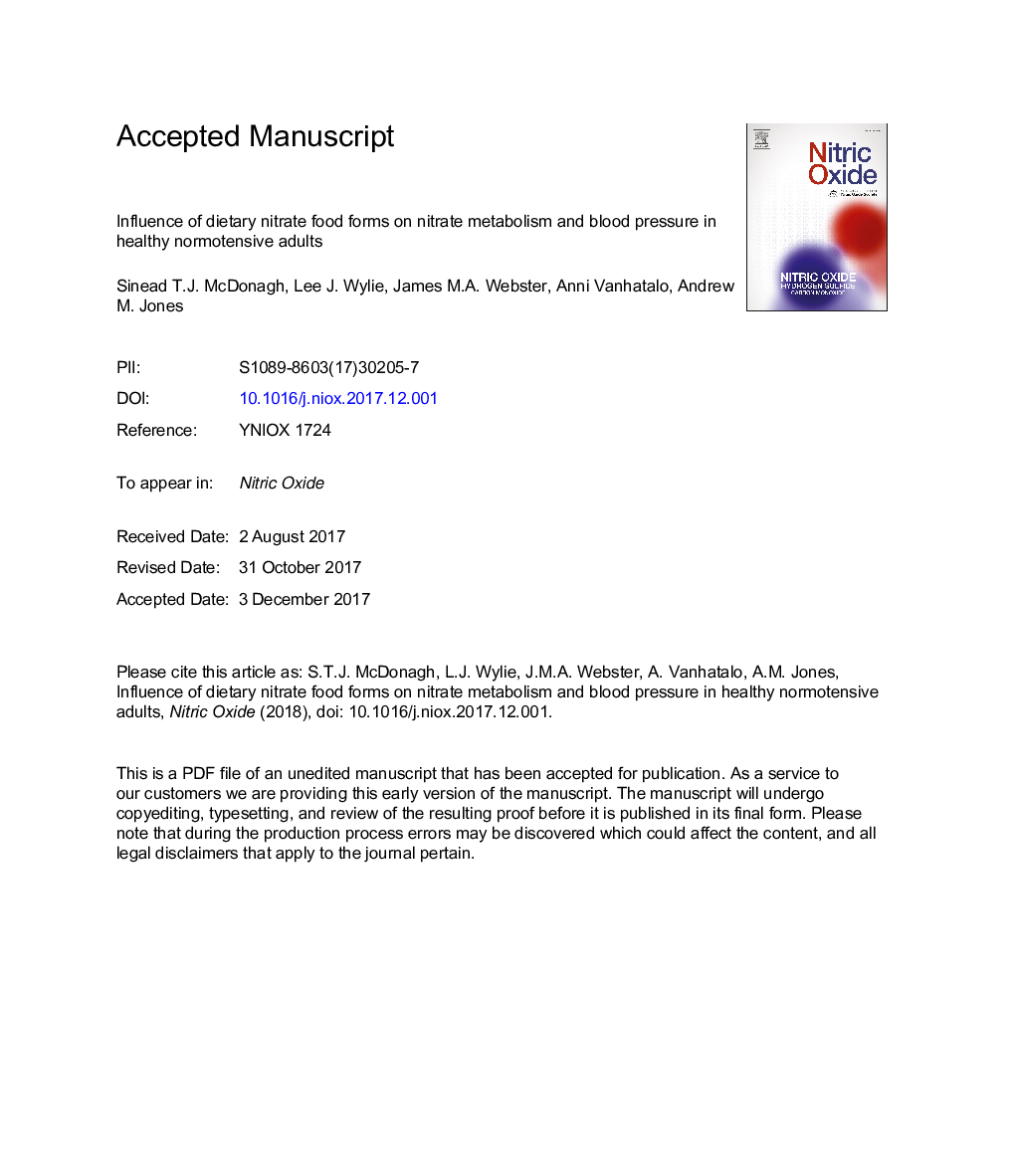| Article ID | Journal | Published Year | Pages | File Type |
|---|---|---|---|---|
| 8344742 | Nitric Oxide | 2018 | 42 Pages |
Abstract
Inorganic nitrate (NO3â) supplementation has been shown to improve cardiovascular health indices in healthy adults. The purpose of this study was to investigate how the vehicle of NO3â administration can influence NO3â metabolism and the subsequent blood pressure response. Ten healthy males consumed an acute equimolar dose of NO3â (â¼5.76 mmol) in the form of a concentrated beetroot juice drink (BR; 55 mL), a non-concentrated beetroot juice drink (BL; 456 mL) and a solid beetroot flapjack (BF; 60 g). A drink containing soluble beetroot crystals (BC; â¼1.40 mmol NO3â) and a control drink (CON; 70 mL deionised water) were also ingested. BP and plasma, salivary and urinary [NO3â] and [NO2â] were determined before and up to 24 h after ingestion. All NO3â-rich vehicles elevated plasma, salivary and urinary nitric oxide metabolites compared with baseline and CON (P<0.05). The peak increases in plasma [NO2â] were greater in BF (371 ± 136 nM) and BR (369 ± 167 nM) compared to BL (283 ± 93 nM; all P<0.05) and BC (232 ± 51 nM). BR, but not BF, BL and BC, reduced systolic (â¼5 mmHg) and mean arterial pressure (â¼3-4 mmHg; P<0.05), whereas BF reduced diastolic BP (â¼4 mmHg; P < 0.05). Although plasma [NO2â] was elevated in all conditions, the consumption of a small, concentrated NO3â-rich fluid (BR) was the most effective means of reducing BP. These findings have implications for the use of dietary NO3âsupplements when the main objective is to maintain or improve indices of cardiovascular health.
Related Topics
Life Sciences
Biochemistry, Genetics and Molecular Biology
Biochemistry
Authors
Sinead T.J. McDonagh, Lee J. Wylie, James M.A. Webster, Anni Vanhatalo, Andrew M. Jones,
